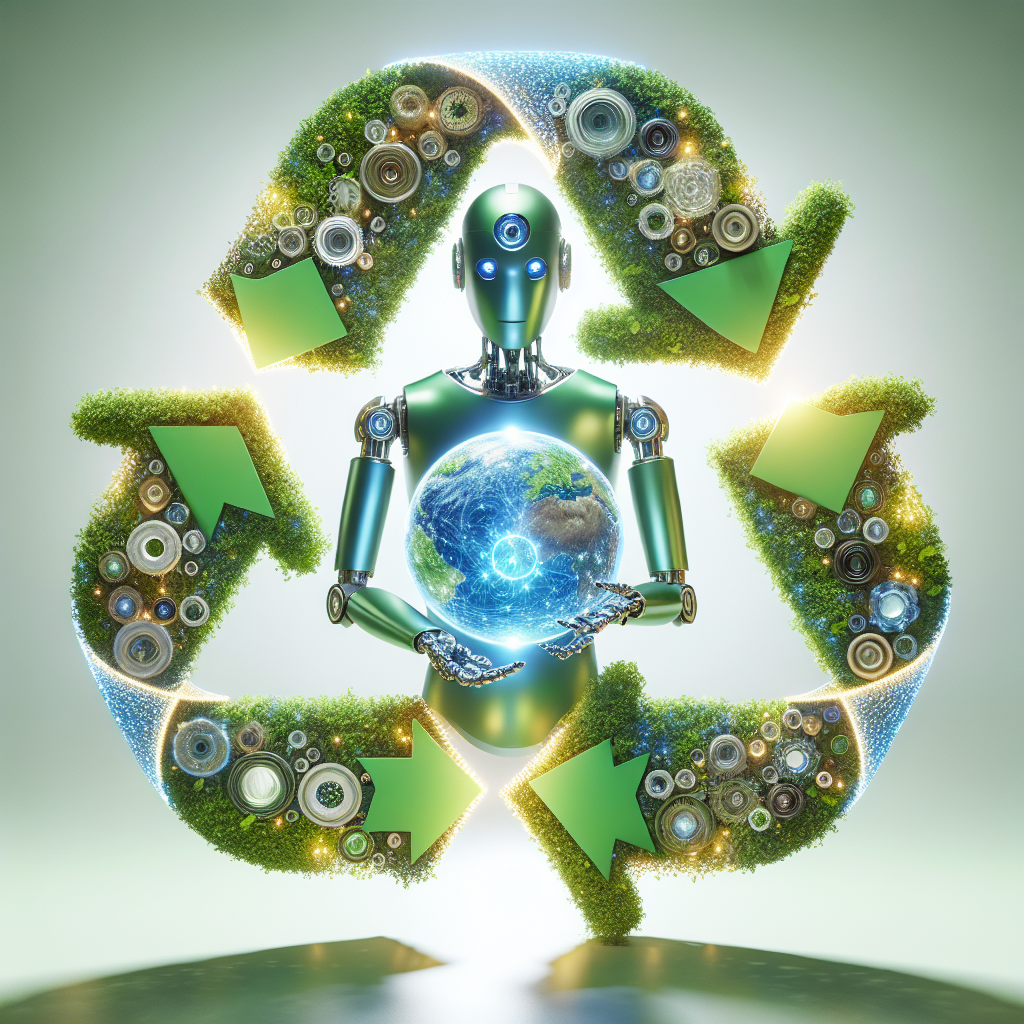The Role of AI in Promoting Circular Economy
The circular economy is a concept aimed at minimizing waste and maximizing the value of resources by keeping them in circulation for as long as possible. This approach stands in contrast to the traditional linear economy, which follows a “take-make-dispose” model that ultimately leads to the depletion of natural resources and the accumulation of waste. In recent years, the circular economy has gained traction as a sustainable alternative to the linear economy, with businesses and governments around the world embracing this approach to reduce their environmental impact.
Artificial Intelligence (AI) has emerged as a powerful tool in advancing the circular economy by optimizing resource use, enhancing recycling processes, and promoting sustainable practices. AI technologies such as machine learning, robotics, and data analytics can help businesses and organizations make informed decisions to improve resource efficiency, reduce waste, and create a more sustainable economy. In this article, we will explore the role of AI in promoting the circular economy and its potential to drive positive environmental outcomes.
1. Optimizing Resource Use
AI can help businesses optimize their resource use by analyzing data and identifying opportunities for efficiency improvements. By leveraging AI-powered algorithms, organizations can identify patterns in resource consumption, predict future demand, and optimize production processes to minimize waste. For example, AI can analyze production data to identify inefficiencies in manufacturing processes and recommend changes to improve resource utilization.
AI can also help businesses make smarter decisions about sourcing materials and managing supply chains. By analyzing data on suppliers, transportation routes, and inventory levels, AI can help businesses identify opportunities to reduce transportation costs, minimize inventory waste, and improve overall supply chain efficiency. This can result in significant cost savings for businesses while reducing their environmental impact.
2. Enhancing Recycling Processes
Recycling plays a crucial role in the circular economy by turning waste into valuable resources. AI can enhance recycling processes by improving the sorting and separation of materials, identifying contaminants, and optimizing recycling operations. For example, AI-powered robots can use computer vision technology to identify and sort different types of materials on a conveyor belt, making the recycling process more efficient and cost-effective.
AI can also help businesses develop new recycling technologies and processes to recycle materials that were previously considered non-recyclable. By analyzing data on material properties and processing techniques, AI can help businesses identify innovative solutions to recycle complex materials such as plastics, electronics, and textiles. This can help reduce the amount of waste sent to landfills and promote a more sustainable approach to waste management.
3. Promoting Sustainable Practices
AI can promote sustainable practices by providing businesses with real-time insights and recommendations to improve their environmental performance. By analyzing data on energy consumption, water usage, and carbon emissions, AI can help businesses identify opportunities to reduce their environmental impact and achieve sustainability goals. For example, AI-powered systems can monitor energy usage in buildings, optimize heating and cooling systems, and recommend energy-saving measures to reduce carbon emissions.
AI can also help businesses track and report their sustainability performance to stakeholders, investors, and regulators. By analyzing data on key performance indicators such as energy efficiency, waste diversion, and greenhouse gas emissions, AI can help businesses demonstrate their commitment to sustainability and transparency. This can help businesses attract environmentally-conscious consumers, investors, and partners who value sustainable practices.
Frequently Asked Questions (FAQs):
Q: How can AI help businesses transition to a circular economy?
A: AI can help businesses transition to a circular economy by optimizing resource use, enhancing recycling processes, and promoting sustainable practices. By analyzing data and providing real-time insights, AI can help businesses make informed decisions to improve resource efficiency, reduce waste, and create a more sustainable economy.
Q: What are some examples of AI applications in the circular economy?
A: Some examples of AI applications in the circular economy include using machine learning algorithms to optimize production processes, robotics to improve recycling operations, and data analytics to track and report sustainability performance. These technologies can help businesses reduce their environmental impact and promote a more sustainable approach to resource management.
Q: How can AI help businesses reduce their environmental impact?
A: AI can help businesses reduce their environmental impact by analyzing data on resource consumption, supply chain operations, and sustainability performance. By providing insights and recommendations, AI can help businesses identify opportunities to improve resource efficiency, reduce waste, and achieve sustainability goals. This can help businesses minimize their environmental footprint and contribute to a more sustainable economy.
Q: What are the benefits of using AI in promoting the circular economy?
A: The benefits of using AI in promoting the circular economy include optimizing resource use, enhancing recycling processes, and promoting sustainable practices. By leveraging AI technologies, businesses can improve efficiency, reduce waste, and achieve sustainability goals. This can result in cost savings, environmental benefits, and a more resilient economy.
In conclusion, AI has the potential to play a significant role in promoting the circular economy by optimizing resource use, enhancing recycling processes, and promoting sustainable practices. By leveraging AI technologies, businesses can make informed decisions to reduce their environmental impact, improve resource efficiency, and create a more sustainable economy. As businesses and governments continue to embrace the circular economy, AI will become an essential tool in driving positive environmental outcomes and promoting a more sustainable future.

